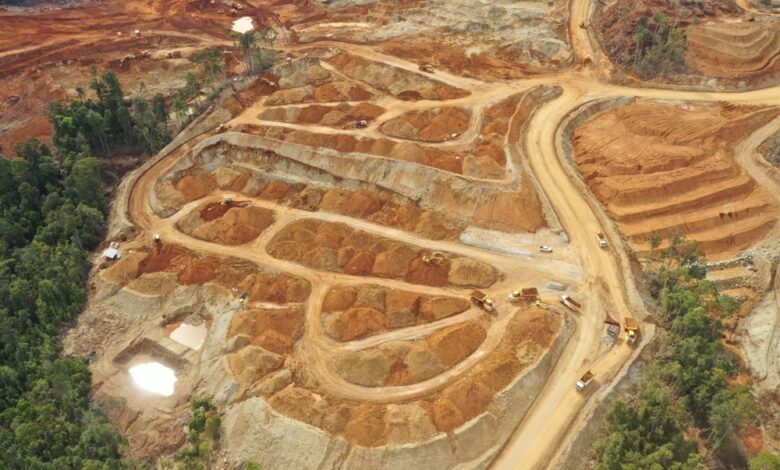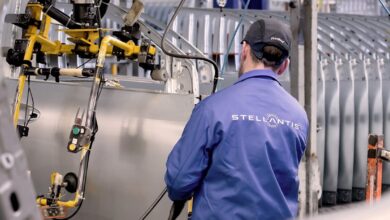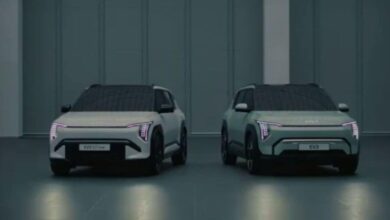Why Indonesia’s EV Ambitions Mean It Will Burn More Coal – Alaska Energy Metals (OTC:AKEMF), Ford Motor (NYSE:F)

20-Year Pro Trader Reveals His “MoneyLine”
Ditch your indicators and use the “MoneyLine.” A simple line tells you when to buy and sell without the guesswork. It’s a line on a chart that’s helped Nic Chahine win 83% of his options buys. Here’s how he does it.
Experts agree that Indonesia’s president-elect Prabowo Subianto will continue to build up the nation’s vertically integrated nickel industry.
What is less certain is how he will balance the nation’s relationship with China—currently the biggest foreign investor in the country’s nickel industry—with ambitions to attract Western investors who will be more concerned about the sector’s toll on the environment and local communities.
“The Indonesian government appears divided,” said Ahmad Syarif, a doctoral candidate in international affairs at Johns Hopkins University and an expert in Indonesian energy and natural resources issues.
“One faction advocates for environmental reforms within the nickel industry, while the other does not feel an immediate need for such changes, primarily because Chinese companies, as the main consumers, have not raised substantial concerns,” he told Benzinga.
“However, should Indonesia aim to diversify its nickel processing exports beyond China, the situation necessitating environmental standards may significantly change,” he said.
Electric-Vehicle Ambitions
Indonesia holds the world’s biggest nickel reserves and undercuts foreign competitors on price in part because of subsidized coal used to generate electricity for the nickel refining process. The president-elect’s predecessor, who holds the presidency until October, banned exports of raw nickel ore to promote domestic value addition in refining.
It appears that Subianto wants to continue building up the battery supply chain and eventually make his archipelago into a hub of battery and electric vehicle production. The government has announced tax incentives designed to boost domestic EV production and sales. It aims to produce 600,000 EVs and have 140 gigawatt-hours of annual battery production capacity by 2030. The nation has pitched Tesla CEO Elon Musk about a battery plant.
But those ostensibly climate-friendly ambitions come embedded with an inherent contradiction—the more batteries and EVs Indonesia produces the more climate-warming coal it burns.
Indonesian nickel is used to make stainless steel. But battery-grade nickel takes more refining, which means more power generation is needed.
The International Energy Agency expects surging demand for nickel and development of coal-fired power plants to boost Indonesia’s coal consumption from 228 million tons in 2023 to 284 million tons in 2026.
“I think that as Indonesia takes a larger share of the nickel market, the country’s coal usage will likely increase proportionately, as most of the country’s nickel refining industry is run on coal-fired power generation,” John Berman, CEO of natural resources investment management firm Berman Capital Group.
China in Charge
For now, China is by far the largest investor in Indonesia’s nickel industry, although companies from other nations are making inroads. Hyundai Motor Group (OTF:HYMTF) has an EV factory there and has teamed up with South Korea’s LG Energy Solution on a battery cell plant. General Motors Co. (NYSE:GM) is involved with a joint venture there, and Ford Motor Co. (NYSE:F) has teamed up with PT Vale Indonesia (OTC:PTNDF) and China’s Zhejiang Huayou Cobalt on a nickel processing facility.
If more Western companies who hold stricter environmental and labor standards than China end up investing in Indonesia and are able to force reforms, Indonesian nickel products could get more expensive, allowing ex-China nickel miners with higher costs of production to be more competitive. The same is true if governments put tariffs on Indonesian nickel exports, as Canada and other Western countries are considering.
“A carbon tax could be a possibility if there were emissions standards in place for the production process, which, in the case of nickel processing, still largely depends on coal,” Syarif said.
“However, with Chinese manufacturers being the primary consumers, the tax would likely apply to the finished products coming from China,” he added. “The challenge lies in how to effectively track the carbon footprint of these processed commodities since there’s currently no adequate system for this tracking.”
At some point, North American and European companies should reject Indonesian nickel that is produced in a way that destroys rainforest, strips soil and is refined with coal-fired power, Greg Beischer, CEO of nickel miner Alaska Energy Metals Corp. (OTC:AKEMF), told Benzinga.
Now Read: Bitcoin Spot ETFs Record 17 Straight Inflow Days, Reaching $15.3B Year-To-Date
Photo: Nanang Sugi/Shutterstock.com
20-Year Pro Trader Reveals His “MoneyLine”
Ditch your indicators and use the “MoneyLine.” A simple line tells you when to buy and sell without the guesswork. It’s a line on a chart that’s helped Nic Chahine win 83% of his options buys. Here’s how he does it.
ENTER TO WIN $500 IN STOCK OR CRYPTO
Enter your email and you’ll also get Benzinga’s ultimate morning update AND a free $30 gift card and more!
© 2024 Benzinga.com. Benzinga does not provide investment advice. All rights reserved.



